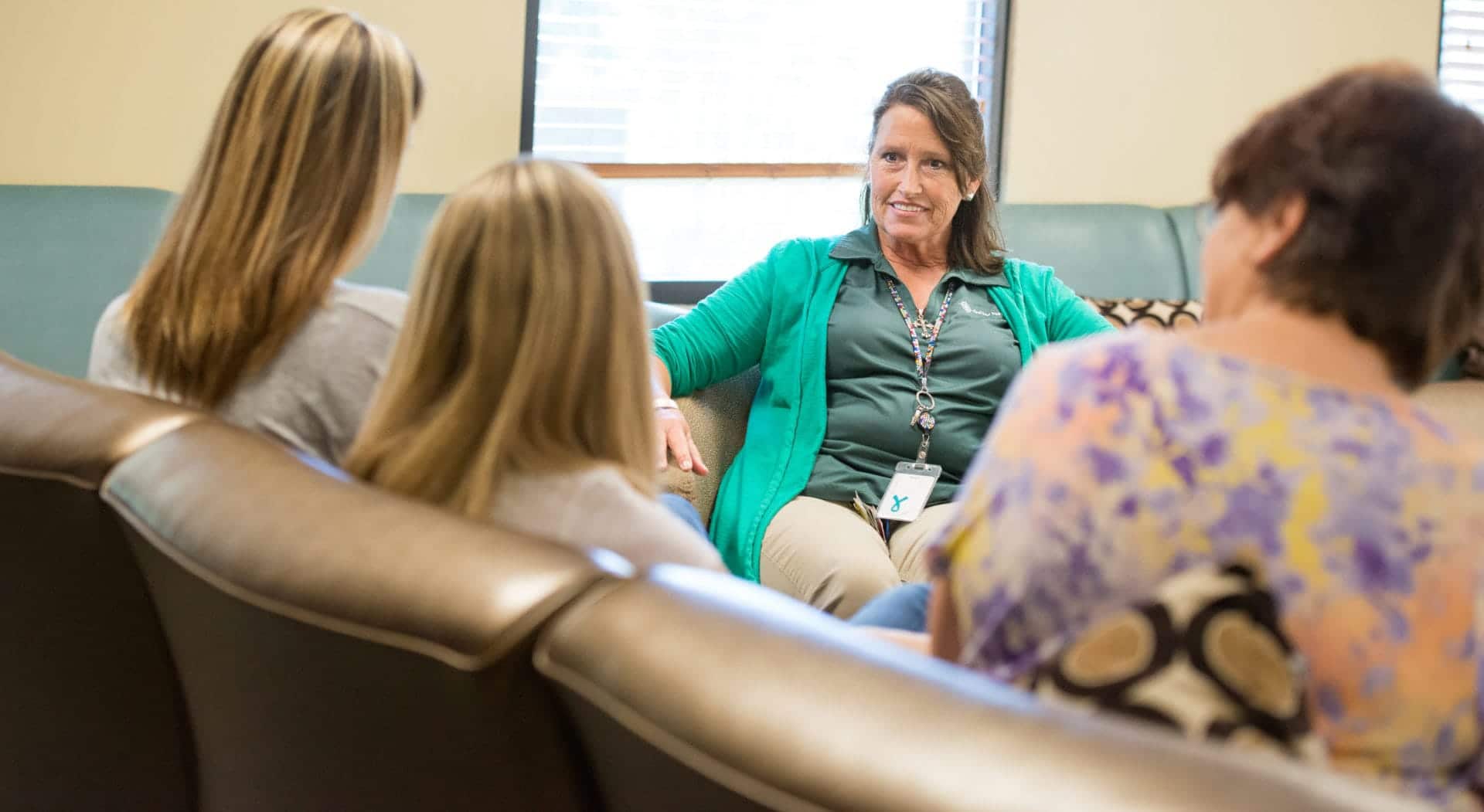

By: Michael Rass
Addiction is a complex disease that requires treatment on multiple levels over a considerable timespan. To ensure continuity of care for patients, the Lakeview Health drug & alcoholism treatment program uses five levels of care. “We have a sophisticated progression,” says Mandy Jack, clinical director at Lakeview Health.
“Our programs are designed to ensure that everybody can transition from the highest level of care down to the lowest level and get maximum health benefits.”
– Mandy Jack, Clinical Director
Detoxification is often the first step. It is the most intensive level of care. At Lakeview Health, the detox process is fully integrated into the comprehensive treatment program and supervised around the clock by licensed staff and medical professionals. Detoxing from drugs and alcohol can be dangerous and should happen under the care of medical professionals to make it as safe and painless as possible. Our medically monitored detox ensures Once patients feel better after going through withdrawal, they can start their residential rehabilitation program. Lakeview Health’s continuity of care system is very flexible and patients can certainly join the residential rehab level if they detoxed elsewhere. “If somebody detoxed at a medical hospital, he or she can come straight into residential rehab at Lakeview,” says Jack. At this level, patients begin to interact more with their support community at the facility—including therapists in their primary groups and other patients. Therapy can also begin to address any underlying psychological or psychiatric conditions that might be behind the substance use disorder. Once they have stabilized medically in detox and behaviorally during residential rehab, patients advance to the partial hospitalization program (PHP). “At this level of treatment, they no longer require 24-hour nursing care or daily medical visits,” explains Jack. “They are beginning to do work that looks at their reintegration into the community.” Patients begin to live off-campus at facility-provided apartments and participate in off-site 12-Step meetings. But they still participate in lots of in-house therapy at Lakeview Health. The intensive outpatient program (IOP) is the lowest level of care before a patient transitions out of treatment at Lakeview Health. “The biggest difference between this and the previous level is going from 6 hours of programming a day in PHP to half of that at the IOP level,” says Jack. Part of the comprehensive approach to fighting addiction at Lakeview Health is integrating family members of patients into the therapy with family addiction support. Family members are invited to participate in a three-day family workshop, usually toward the end of treatment at Lakeview Health. Family members have a chance to let the patient in recovery know what the substance misuse has done to them, and patients, too, have an opportunity to share their feelings openly. Both sides work on rebuilding trust and learning to avoid behaviors detrimental to recovery. Once patients graduate from Lakeview Health, they can rely on the aftercare program for sustained sobriety. Although it is called aftercare, the planning for this level starts as soon as patients begin their treatment at Lakeview Health. The team works with each patient to assess their personal goals for continuing their sobriety after they leave the structured environment of the rehab center. They are also invited to join Lakeview’s alumni program, which offers phone follow-ups, monthly recovery activities, a monthly support group in Jacksonville, and email support. Quite a few alumni end up working for Lakeview Health. “They went through all levels of care Lakeview offers and then stayed in touch through the alumni program and support groups,” says Mandy Jack. “After several years of sobriety, they became staff members. They benefited so much from their treatment at Lakeview that they are now helping others beat addiction.”
 “Our programs are designed to ensure that everybody can transition from the highest level of care down to the lowest level and get maximum health benefits.”
“Our programs are designed to ensure that everybody can transition from the highest level of care down to the lowest level and get maximum health benefits.” 




